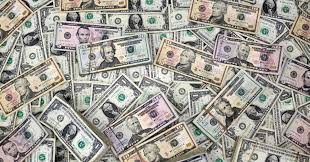The U.S. dollar fell against all major global currencies on Monday as market optimism sparked by a strong American jobs report was quickly overtaken by investor caution ahead of high-stakes trade negotiations between the United States and China, scheduled to take place later in the day in London.
The talks are seen as critical for both economic superpowers. China is currently struggling with persistent deflationary pressures, while the U.S. is facing growing concerns over how prolonged trade uncertainty is affecting business confidence and consumer spending. The shifting economic landscape has led investors to reconsider the dollar’s status as a safe-haven currency, especially in the face of potential geopolitical and trade risks.
The dollar index, which measures the greenback against a basket of six major currencies, edged lower as traders trimmed expectations for further U.S. economic strength amid external challenges. Analysts say that although Friday’s strong U.S. jobs report initially boosted confidence in the American economy, investors are now more focused on potential disruptions that could arise from deteriorating U.S.-China relations.
“Market sentiment is turning defensive,” said one currency strategist. “The employment numbers were solid, but traders are looking beyond that now. The focus is on whether Washington and Beijing can avoid another trade confrontation.”
The renewed talks come as both countries face mounting internal and external economic pressures. China’s central bank has been battling low consumer prices, weak industrial activity, and sluggish investor confidence. Meanwhile, in the U.S., higher interest rates and mixed data from the manufacturing and housing sectors have raised questions about the durability of growth in the second half of the year.
Traders will be closely watching any statements or signals that emerge from the London meeting, especially regarding tariffs, supply chain cooperation, and export controls on high-tech goods. Any signs of tension or deadlock could rattle global markets and further pressure the dollar.
Currency markets have already begun to react. The euro gained 0.4% against the dollar, while the British pound rose 0.3%. The Japanese yen, typically seen as a safe-haven rival to the dollar, also strengthened slightly. Commodity-linked currencies like the Australian and Canadian dollars also made gains, supported by a slight rebound in oil and metal prices.
Financial analysts say the dollar’s performance in the coming days will largely depend on the tone and outcome of the U.S.-China talks. A positive outcome could ease concerns and stabilize the greenback, while a breakdown could send it even lower as investors shift to alternative safe-haven assets like gold or the Swiss franc.
